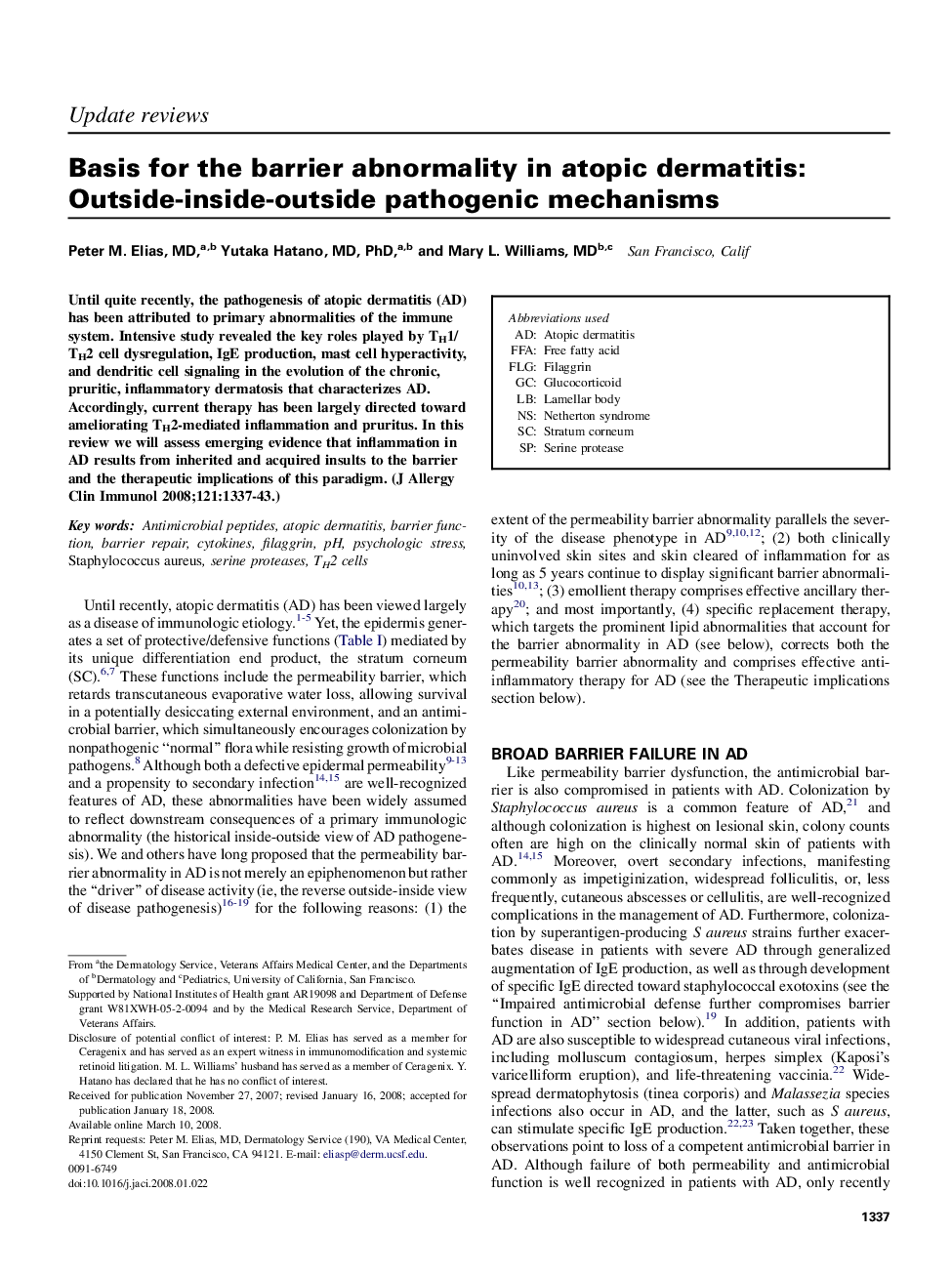| Article ID | Journal | Published Year | Pages | File Type |
|---|---|---|---|---|
| 3202822 | Journal of Allergy and Clinical Immunology | 2008 | 7 Pages |
Abstract
Until quite recently, the pathogenesis of atopic dermatitis (AD) has been attributed to primary abnormalities of the immune system. Intensive study revealed the key roles played by TH1/TH2 cell dysregulation, IgE production, mast cell hyperactivity, and dendritic cell signaling in the evolution of the chronic, pruritic, inflammatory dermatosis that characterizes AD. Accordingly, current therapy has been largely directed toward ameliorating TH2-mediated inflammation and pruritus. In this review we will assess emerging evidence that inflammation in AD results from inherited and acquired insults to the barrier and the therapeutic implications of this paradigm.
Keywords
Related Topics
Life Sciences
Immunology and Microbiology
Immunology
Authors
Peter M. Elias, Yutaka Hatano, Mary L. Williams,
